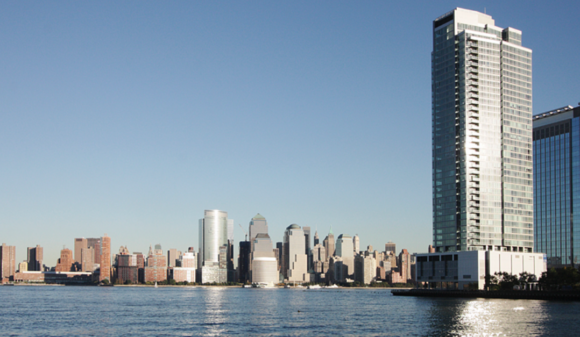New Jersey’s Direct Action Statute allows a condominium association’s construction defects claims against an insurer, but the plaintiff must comply with a binding arbitration clause in the policies, the state Supreme Court ruled Monday.
The unanimous decision overturns rulings by both the trial court and the state Appellate Division. The high court found that the Direct Action Statute applies to the Crystal Point Condominium Association’s claims against Kinsale Insurance Co., while the Hudson County Superior Court had ruled that it did not. But the court also found that an arbitration provision in the policies applies, while the Appellate Division had determined it did not.
According to the opinion, “Crystal Point’s claims against Kinsale are derivative claims, and are thus subject to the terms of the insurance policies at issue, including the provision in each policy mandating binding arbitration of disputes between Kinsale and its insureds.”
The Crystal Point Condominium Association manages a 42-story residential high-rise that towers over the Hudson River in Jersey City. In 2015, the association filed construction defect lawsuits against several contractors, including Nacamuli Associates LLC, a structural engineering firm, and Hawke Inspections and Testing, a construction inspection provider.
Neither defendant responded to the lawsuits and a default judgment was awarded to the association in the amount of $874,400.86 against Nacumuli and $859,965.01 against Hawke. Kinsale had issued professional liability policies to both companies.
The association filed a declaratory judgment action against Kinsale, arguing that it is afforded coverage by the Direct Action Statute, a law passed in 1924 that gives third-party claimants a method of seeking insurance benefits owed by insurers to insolvent policyholders.
The Hudson County court ruled that the Direct Action Statute did not apply to Crystal Point’s claims because no evidence was submitted to show that Nacamuli and Hawke were insolvent.
Crystal Point filed an appeal and submitted affidavits from sheriff’s officers showing that they were unable to serve papers on the companies, which were not located at the addresses given to state officials.
An Appellate Division panel ruled that the Direct Action Statute applies, but Crystal Cove does not have to comply with the arbitration clause because it was not a signatory to the contract.
This time, Kinsale appealed. The Insurance Council of New Jersey and New Jersey Civil Justice Association joined the case as amicus curie.

Kayla Rowe, an attorney for the Civil Justice Association, said if the Supreme Court had affirmed the Appellate Division, insurance costs would increase.
“Third parties seeking to enforce insurance policies could be allowed to litigate their way out of arbitration provisions in the same insurance policies they seek to enforce,” she said in an email. “There would have been the regular litigation, and then there would have been litigation over whether any arbitration provision in the insurance policy should be enforced. These additional costs would have had to be built into insurance premiums.”
She said the Appellate Division’s ignored strong public policy that encourages arbitration.
“In issuing its decision, the appellate panel asked more of the arbitration provision than it would an ordinary contract, contradicting New Jersey and federal law on arbitration agreements,” she said.
The ruling wasn’t a complete win for Kinsale. The insurer’s attorney, Sean P. Mahoney, argued that the Direct Action Statute applies only to bodily injury claims, citing language in the statute that says coverage is owed for “loss or damage resulting from accident to or injury suffered by an employee or other person. Since there was no accident or injury at issue in Crystal Point’s claims, the statute does not apply, Mahoney argued.
The Supreme Court rejected that argument. Another clause in the statute allows claims for “damage to property” and nothing in the statute suggests any attempt by the legislature to limit coverage, the opinion says.
The high court reversed the Court of Appeals decision and reinstated the trial court’s order to submit the lawsuit to binding arbitration.
Was this article valuable?
Here are more articles you may enjoy.


 These Five Technologies Increase The Risk of Cyber Claims
These Five Technologies Increase The Risk of Cyber Claims  Credit Suisse Nazi Probe Reveals Fresh SS Ties, Senator Says
Credit Suisse Nazi Probe Reveals Fresh SS Ties, Senator Says  Founder of Auto Parts Maker Charged With Fraud That Wiped Out Billions
Founder of Auto Parts Maker Charged With Fraud That Wiped Out Billions  Tesla Sued Over Crash That Trapped, Killed Massachusetts Driver
Tesla Sued Over Crash That Trapped, Killed Massachusetts Driver 